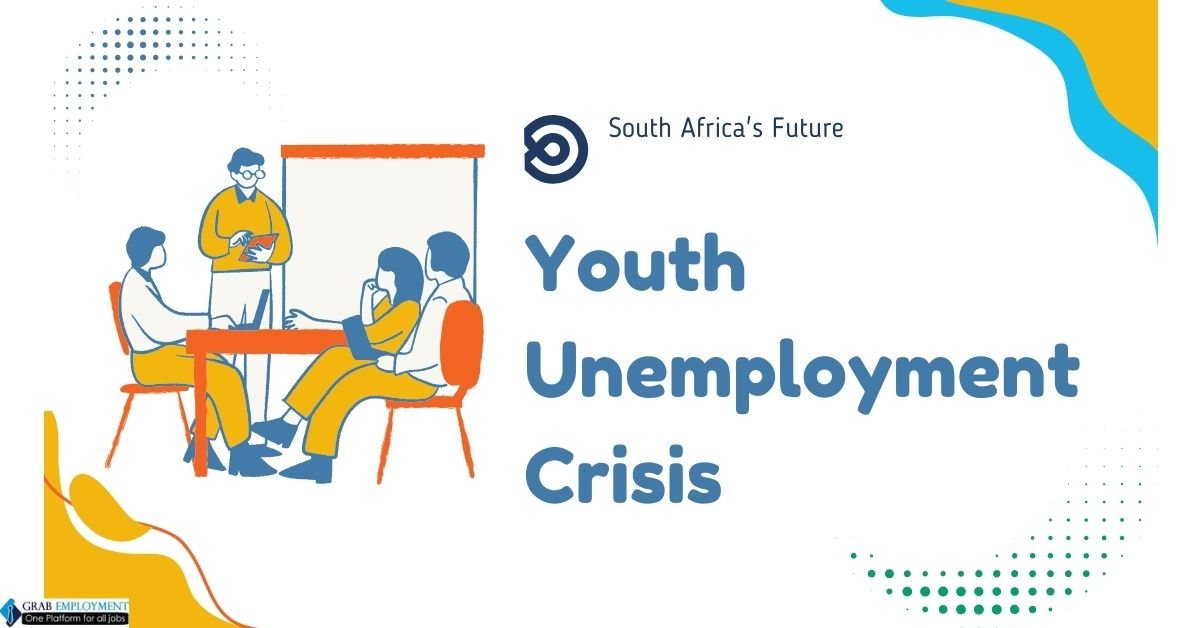The Youth Unemployment Crisis: Implications for South Africa’s Future
Introduction
Youth unemployment represents one of the most pressing socio-economic challenges facing South Africa today. With over half of the country’s young population unable to find employment, the implications of this crisis extend far beyond individual livelihoods. This article explores the profound implications of youth unemployment for South Africa’s future, examining its impact on economic growth, social cohesion, and political stability.
The Scale of the Youth Unemployment Crisis
Youth unemployment in South Africa is staggering, with rates far exceeding those of the general population. Structural factors such as inadequate education, skills mismatches, and limited job opportunities contribute to the persistence of youth unemployment. Despite government initiatives and private sector interventions, the youth unemployment crisis remains a daunting challenge with far-reaching consequences.
Economic Implications
The high levels of youth unemployment have significant economic implications for South Africa’s future prosperity. A large pool of unemployed youth represents wasted human capital and undermines the country’s potential for economic growth and innovation. Unemployment also places a strain on social welfare systems and government resources, as unemployed youth may require support in the form of social grants, healthcare, and other services.
Moreover, youth unemployment perpetuates cycles of poverty and inequality, as young people are unable to build assets, accumulate savings, or invest in their future. This undermines efforts to reduce intergenerational poverty and achieve sustainable development goals.
Social Consequences
Youth unemployment has profound social consequences, eroding social cohesion, and exacerbating inequality. The lack of economic opportunities can lead to feelings of disillusionment, frustration, and alienation among young people, fueling social unrest and political instability.
Unemployed youth are also more vulnerable to negative social outcomes, including involvement in criminal activities, substance abuse, and mental health issues. The social marginalization and exclusion experienced by unemployed youth can further perpetuate cycles of poverty and disadvantage, creating barriers to social mobility and upward mobility.
Political Implications
The youth unemployment crisis has significant political implications, shaping perceptions of government effectiveness, legitimacy, and accountability. Frustrations over the lack of economic opportunities and social mobility can fuel discontentment with the political establishment and undermine confidence in democratic institutions.
Unemployed youth represent a potentially powerful political constituency, capable of mobilizing for social change and demanding greater accountability from policymakers. Failure to address the youth unemployment crisis effectively risks social unrest, protests, and political instability, posing challenges to governance and stability.
Addressing the Youth Unemployment Crisis
Addressing the youth unemployment crisis requires a comprehensive approach that tackles underlying structural barriers and promotes inclusive economic growth. Key interventions include:
- Investment in Education and Skills Development: Enhancing access to quality education and skills development programs is crucial for equipping young people with the tools they need to succeed in the labor market. This includes vocational training, apprenticeships, and initiatives to promote STEM education and digital literacy.
- Job Creation and Economic Growth: Stimulating economic growth and creating job opportunities for young people are essential for reducing youth unemployment. This requires investment in key sectors such as manufacturing, agriculture, and technology, as well as support for small and medium-sized enterprises and entrepreneurship.
- Youth Empowerment and Participation: Empowering young people to participate in decision-making processes and shaping their own futures is vital for fostering social inclusion and political engagement. This includes promoting youth leadership, civic education, and youth-led initiatives that address local challenges and promote community development.
- Social Protection and Support Services: Providing social protection and support services to unemployed youth can help alleviate the immediate hardships associated with unemployment and reduce vulnerability to negative social outcomes. This includes access to social grants, healthcare, mental health services, and substance abuse treatment.
- Addressing Structural Inequality: Tackling underlying structural inequalities, including racial disparities, spatial segregation, and access to resources, is fundamental for addressing the root causes of youth unemployment. This requires targeted interventions aimed at promoting social justice, inclusive growth, and equitable distribution of opportunities.
Conclusion
The youth unemployment crisis poses significant challenges for South Africa’s future prosperity, social cohesion, and political stability. Addressing this crisis requires a concerted effort from government, civil society, and the private sector to tackle underlying structural barriers, promote inclusive economic growth, and empower young people to realize their full potential. By investing in education, job creation, youth empowerment, and social protection, South Africa can build a more equitable and prosperous future for all its citizens.




